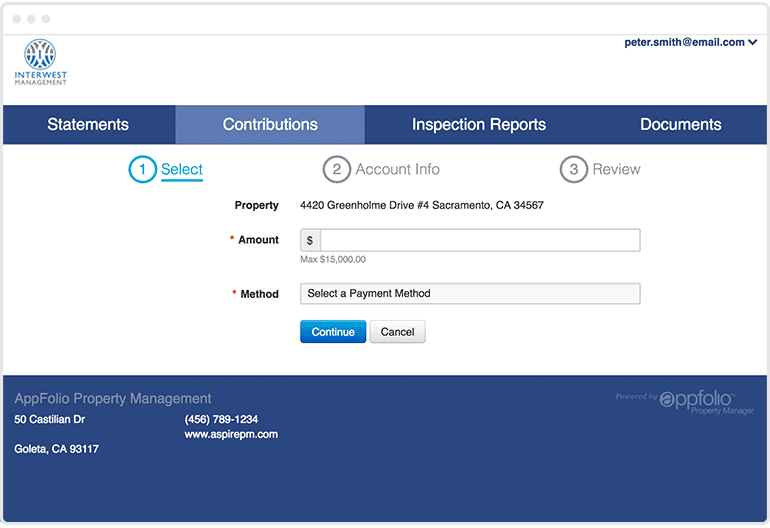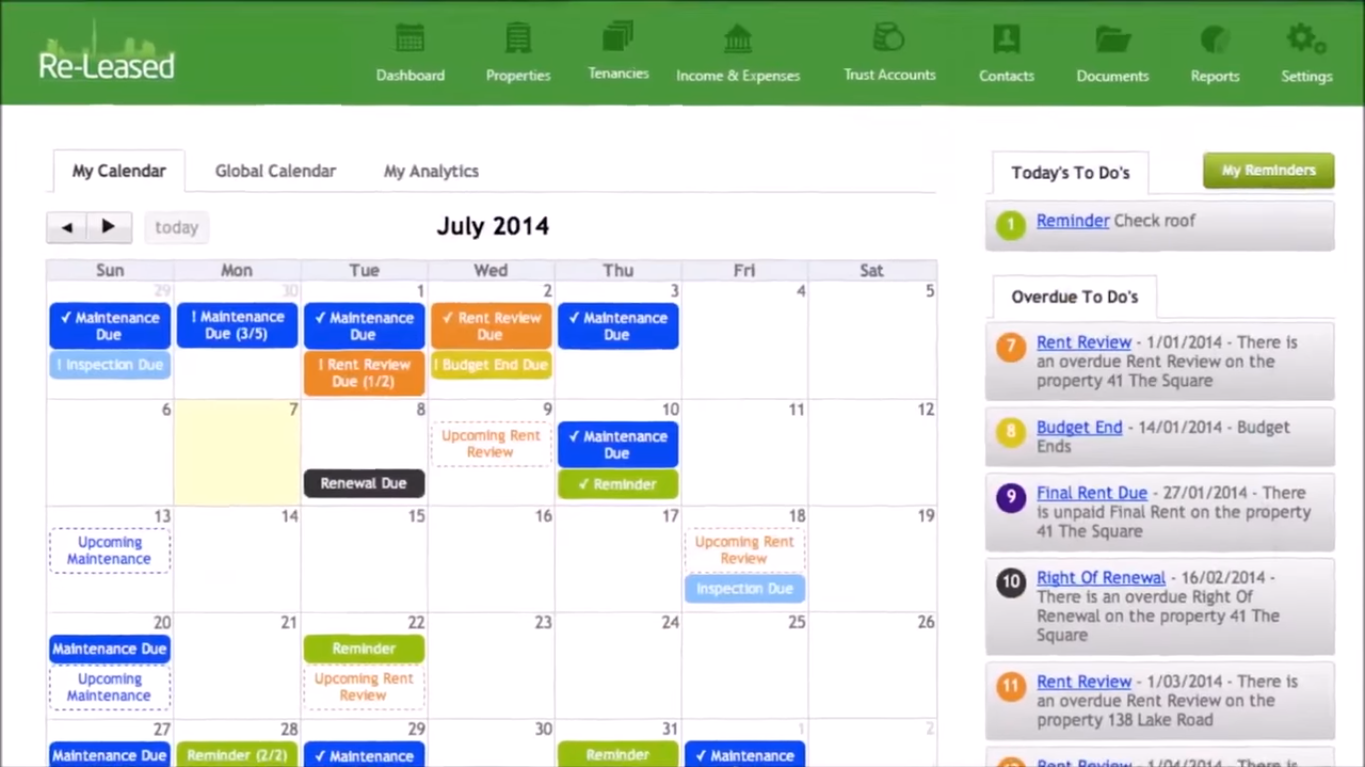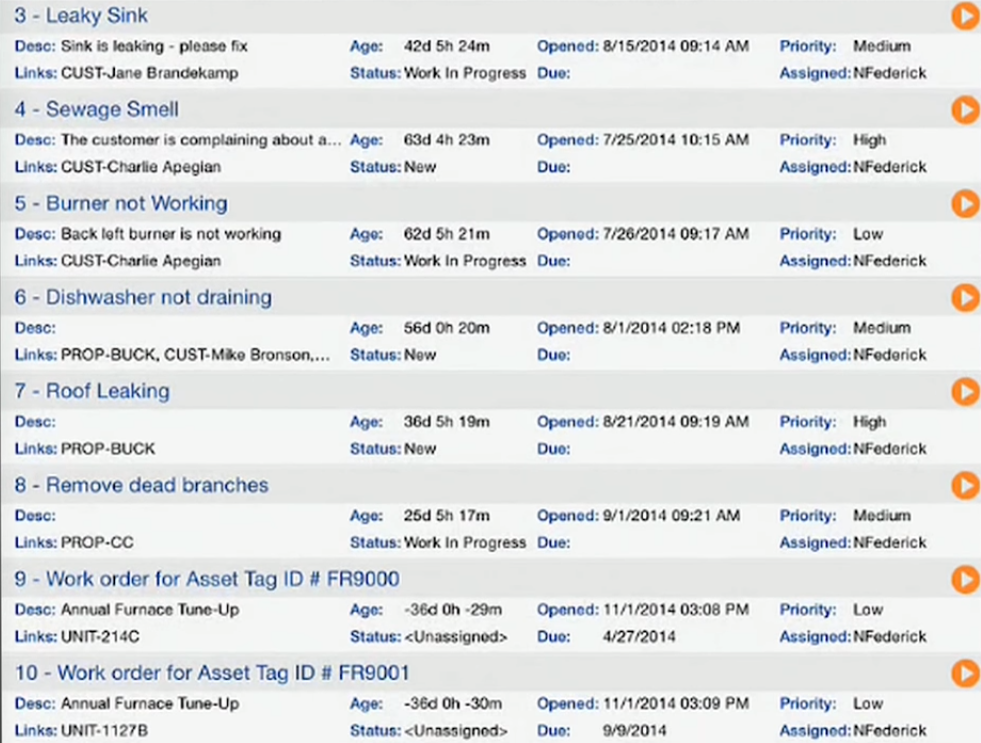Are you still handling your property portfolio manually with spreadsheets and stacks of documents? If yes, then you could be experiencing slow-moving workflows due to the constant shuffling of papers and rigorous data entry. You could also constantly be losing important information or encountering errors in your data.
As a result of these issues, your communications with potential tenants become delayed. You could miss out on signing a new lease or fail to address concerns that could convince future tenants to sign up with you. Slowed communications can also cause dissatisfaction among your current tenants, especially regarding the maintenance and repair of their units.
Because of these things, your bottom line could take multiple hits. This is no good in the long-run if you are to stay in the game. However, since you are here, you may be looking to modernize and automate your work processes and improve your revenues ultimately. That’s a great choice, as renters all over the world are seeking optimal experiences, from applying as a tenant to paying their dues.
To meet the requirements of future tenants, you need a property management software (PMS). This kind of software solution reduces manual entry and effectively eliminates errors. It can either have a built-in communication tool or integrate with your favorite communication apps. In this way, you can streamline exchanges with tenants and applicants as well as your workmates, if any. Some solutions are even customizable so that you can brand the interface. You can tailor the arrangement of tools and windows to your preference, too. But what is a property management system, exactly? Below, we’ll discuss the software solution in-depth and list options that can help narrow down or close your search.
What is property management software?
Property management software is used by property managers and owners. Its main function is the overseeing of houses, condos, commercial units, or buildings for rent. The application is also designed to track rental/lease applications, collect payments, manage renters, and monitor expenses.
List of Best Property Management Software
There are numerous property management software out there vying for your attention, but only a handful deserves your attention. Here are some of them:
- AppFolio: This solution has accounting tools that help you keep your properties afloat. It can centralize processes, so you only have to use one interface for everything related to your property.
- Rent Manager: This versatile system helps track rental information and has an open API to let you integrate it with solutions that you need.
- Buildium: Simplifying property management is why Buildium is around. It especially streamlines rent payment collection and rental payment reminders.
- Re-Leased: This cloud-based property management solution has every tool you can ask for. It is good for both commercial and residential units.
- Mashvisor: This platform is designed to simplify elearning from course creation and administration to student management. It also helps sell courses and streamlines communications internally. There is a free plan, and there are multiple economical plans to choose from when you decide to scale up.
- Yardi Voyager: This web-based solution is also accessible on mobile to enable you to manage property operations wherever you are. That includes closing deals, generating analytics and reports, and offering the best services to your clients and investors.
- RealPage: This AI-powered platform transforms information into actionable market analytics to help you stay ahead in the game. It also provides you with an innovative resident screening solution that expedites leasing processes.
- Building Engines: If you want your building to be a place where people would want to work or live in, Building Engines can become your companion. This solution helps you manage maintenance tasks so that you can keep your tenants happy. Plus, it has communication tools that let you connect with clients.
- Yardi RENTCafe: This powerful property marketing software provides you with the necessary features to put your property portfolio where potential tenants can find them. That means you can create websites and circulate information with multichannel marketing tools.
- DoorLoop: Versatile and user-friendly, the platform offers robust features, such as centralized tenant and property management, automated rent reminders, expense tracking, and insightful analytics. It caters to various users, from individual landlords with small portfolios to larger property management companies.
- ResMan: With this platform, everything you require to oversee your properties is in one place. Though ResMan is a full-featured suite, you have a choice over which modules to include, thus you retain flexibility and control.
- Hostify: An online solution built to automate property management processes. It can facilitate communication between managers and customers for seamless transactions. What is more, it can synchronize all property bookings across 400 channels to give you real-time visibility of your data.
How does property management software work?
Organizes Properties
A PMS helps property owners or managers to put their properties in one place. In this way, they can keep track of everything related to their property portfolios, such as occupancy periods, maintenance and repair activities, utilities, and more.
Manages Tenants
Keeping tenants happy is one of the primary concerns of property overseers. That is why modern PMS solutions are equipped with tenant management tools. These can cover anything from application tracking, applicant credit check, and self-service portals for information management and service requests. Other PMS solutions also go out on a limb to include CRMs in their systems.
Tracks Expenses
What is a property without funds for necessary maintenance and repairs? What can it do when it does not have the cash to comply with government regulations, such as tax payments? It can crumble and close and won’t bring in revenue. That is why property management solutions have expense trackers. They can come in different forms and may have variations in features like invoicing, receipt input, and the like.
Who is PMS for?
PMS is not just for big players in real estate. Even property owners with one or two or three units can utilize it to streamline their tasks. It is also helpful to property managers who handle properties for multiple clients.
- Property owner. There are PMS that cater to owners with only a few properties and allows you to be hands-on when it comes to property management. These can range from simple to sophisticated systems, depending on the needs of the user as well as the number of properties.
- Property manager. Having a property management software can make management tasks seamless for managers, especially if they have a number of clients. They can better ensure the satisfaction of renters as well as owners when they can keep everything organized in one place.
What are the types of property management software?
There is a variety of PMS based on the nature of the property to be managed.
- Rental PMS. This type of PMS is for houses, apartments, condominium units, and business units that are available for rent or lease. It has the necessary tools that help collect rent and keep payment and maintenance records.
- Real Estate PMS. This PMS is designed for real estate management. With this, it is easier for agencies to handle the rental/lease or sale of properties. It can track tenants and buyers, calculate brokerage fees, and even assist in property listing.
- Vacation Rental PMS. This is solely for properties that attract vacationers. They can be villas, inns, or lodges. Like the other types of PMS, it has tenant tracking and payment collection tools. It can also have unique features, such as room availability management.
What features can you expect from a PMS?
- Tenant application. A PMS helps you receive tenancy applications online.
- Tenant screening. You can screen potential tenants by doing background and credit checks.
- Lease management. Having a PMS lets you keep tabs on ongoing leases.
- Tenant portal. A PMS with this feature empowers tenants to manage their information, pay their rent online, track their payments, and lodge service requests.
- Maintenance and repairs management. Routine maintenance is necessary, and this feature aids you in tracking when maintenance should be done next. This also appraises you of repair requests.
- Unit availability tracking. How many units do you have available for occupancy at the moment? This tool can assist you with that.
- Expense tracking. Know how much money is going out to ensure that you have a healthy balance sheet.
- Brokerage/commission tracking. Pay your agents fairly using this PMS feature. Agents and managers can also use this to track the commissions they earn.
- Two-way communication. Whenever tenants have concerns, having a two-way chat within the platform organizes all communications in a single place.
- Property listing. This PMS feature enables owners and managers to distribute vacancies to multiple listing sites in one go.
- Payment processing. You can make payment convenient for tenants by having a payment processing solution within the PMS. With this, you can accept credit or debit cards anytime.
What are the latest trends in property management software?
- Integrated tenant screening is becoming a real trend. It used to be that tenant background, and credit checks had to be done with another solution or outsourced altogether. Since APIs are becoming robust, it is now possible to automate and complete tenant screening without leaving the PMS interface.
- Built-in payment processing is also on the rise because tenants are demanding payment convenience. PMS now include payment processors with their solutions so that users do not have to set them up from scratch.
- Smartlocker management is becoming a much-needed feature in PMS since tenants are often buying things online. Because they cannot be around always to receive packages, tenants expect their landlords to provide smartlockers. PMS can integrate with some solutions at this time.
- Virtual reality is crawling into PMS. This allows potential tenants to visit units or properties virtually before signing the deal. This is convenient for both owner/manager and prospective renters because they do not have to travel far away to tour the property.
- Dynamic pricing. Most of PMSs are currently integrated with dynamic pricing tools and it would be a good fit for us if you could add a line about it and insert a link to DPGO.)

If you require regular contributions, you can collect them online using online payment processors such as this one from AppFolio.
What are the benefits of PMS?
- Portfolio keeping. With a PMS, you no longer have to deal with stacks of papers and folders regarding properties you are managing. Instead, you can access any information relating to properties with a few clicks.
- Secure payments. It is not just convenient, but it is safe, too. PMS allows you to process rent or lease payments online so that you do not have to run after tenants.
- On-time services. Because PMS helps you track repair requests, you can prioritize them and ensure that they are completed in due time.
Are there issues that you can encounter with property management software?
PMS may be great, but they still come with issues. Here are a few potential problems that you should be aware of:
- It may be top-of-the-line. Sophisticated PMS are great, but not when they break the bank. You may not need the best. But watch out also for cheaper alternatives; it may not have the features you want.
- It needs to be installed. In the age of cloud and SaaS, there are still PMS that are on-premise only. This can pose a problem, especially if you are looking for mobility.
- It does not play well with other software. Integration is a crucial aspect of software because it streamlines the exchange of information. If a PMS is not capable of this, then your job is only going to be doubled.
What should you consider when choosing an property management software?
Deciding on a PMS is not something done lightly. On that note, here are some things you have to keep in mind when choosing a vendor.
- Price. The best is not necessarily out of reach of your budget. There are PMS that offer robust capabilities for free or for a fair price.
- Property type. What kind of property will you be using your PMS for? You have to determine that, as there are solutions that are developed purely for vacation rentals, real estate, or plain rentals.
- User-friendliness. You don’t want to use a PMS that has a clunky interface and has complicated functions. Test-drive an application first to see how easy (or difficult) it is to utilize.
- Integration. If you want to have a cohesive software ecosystem, you need to have solutions that can integrate.
Do extensive research
If you want a property management software that works well with your workflow, you have to do extensive research. You need to read about the features and watch videos about how they work. You can also experience the platform for yourself before making the final decision. There are PMS vendors that offer free demos as well as free trials. Take advantage of these so that you can make an intelligent choice.


